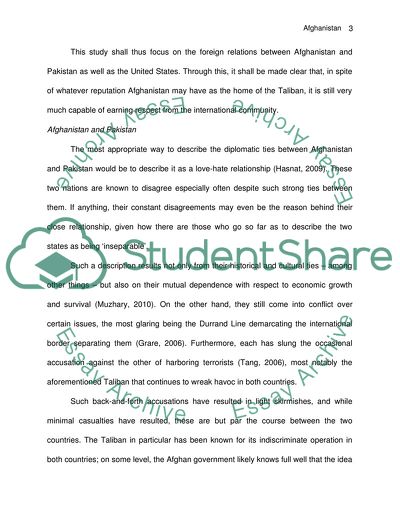Cite this document
(Afghanistan: Foreign Relations Research Paper Example | Topics and Well Written Essays - 1500 words, n.d.)
Afghanistan: Foreign Relations Research Paper Example | Topics and Well Written Essays - 1500 words. Retrieved from https://studentshare.org/politics/1783822-international-relation-of-afghanistan
Afghanistan: Foreign Relations Research Paper Example | Topics and Well Written Essays - 1500 words. Retrieved from https://studentshare.org/politics/1783822-international-relation-of-afghanistan
(Afghanistan: Foreign Relations Research Paper Example | Topics and Well Written Essays - 1500 Words)
Afghanistan: Foreign Relations Research Paper Example | Topics and Well Written Essays - 1500 Words. https://studentshare.org/politics/1783822-international-relation-of-afghanistan.
Afghanistan: Foreign Relations Research Paper Example | Topics and Well Written Essays - 1500 Words. https://studentshare.org/politics/1783822-international-relation-of-afghanistan.
“Afghanistan: Foreign Relations Research Paper Example | Topics and Well Written Essays - 1500 Words”, n.d. https://studentshare.org/politics/1783822-international-relation-of-afghanistan.


